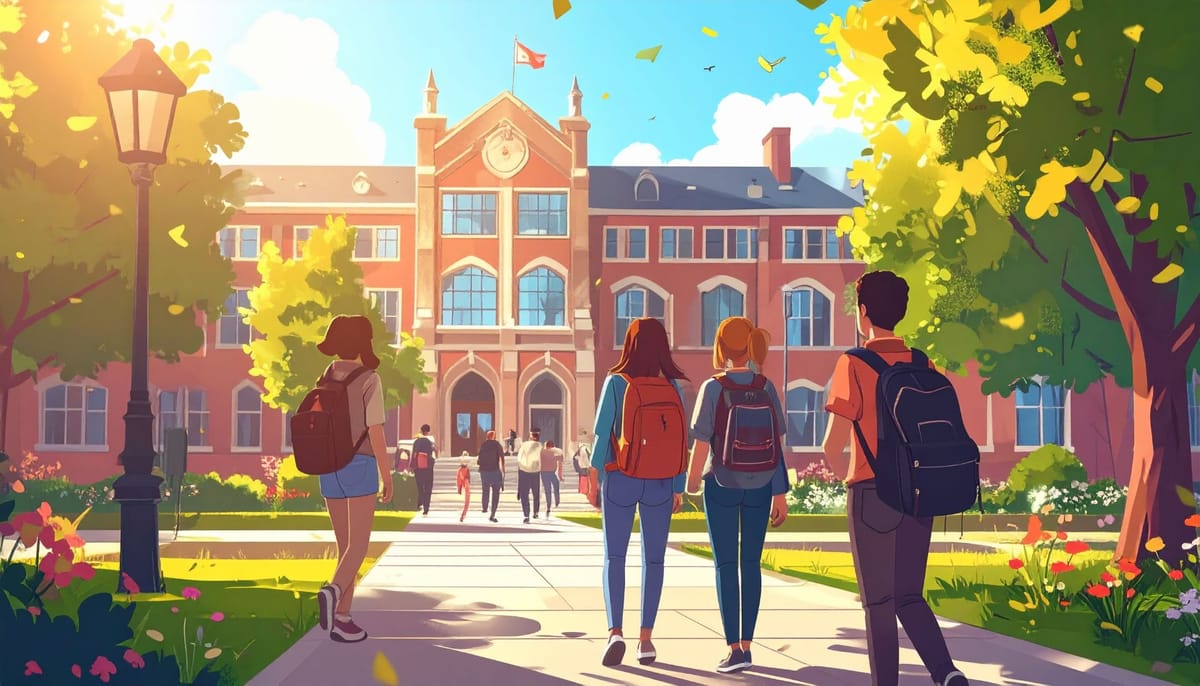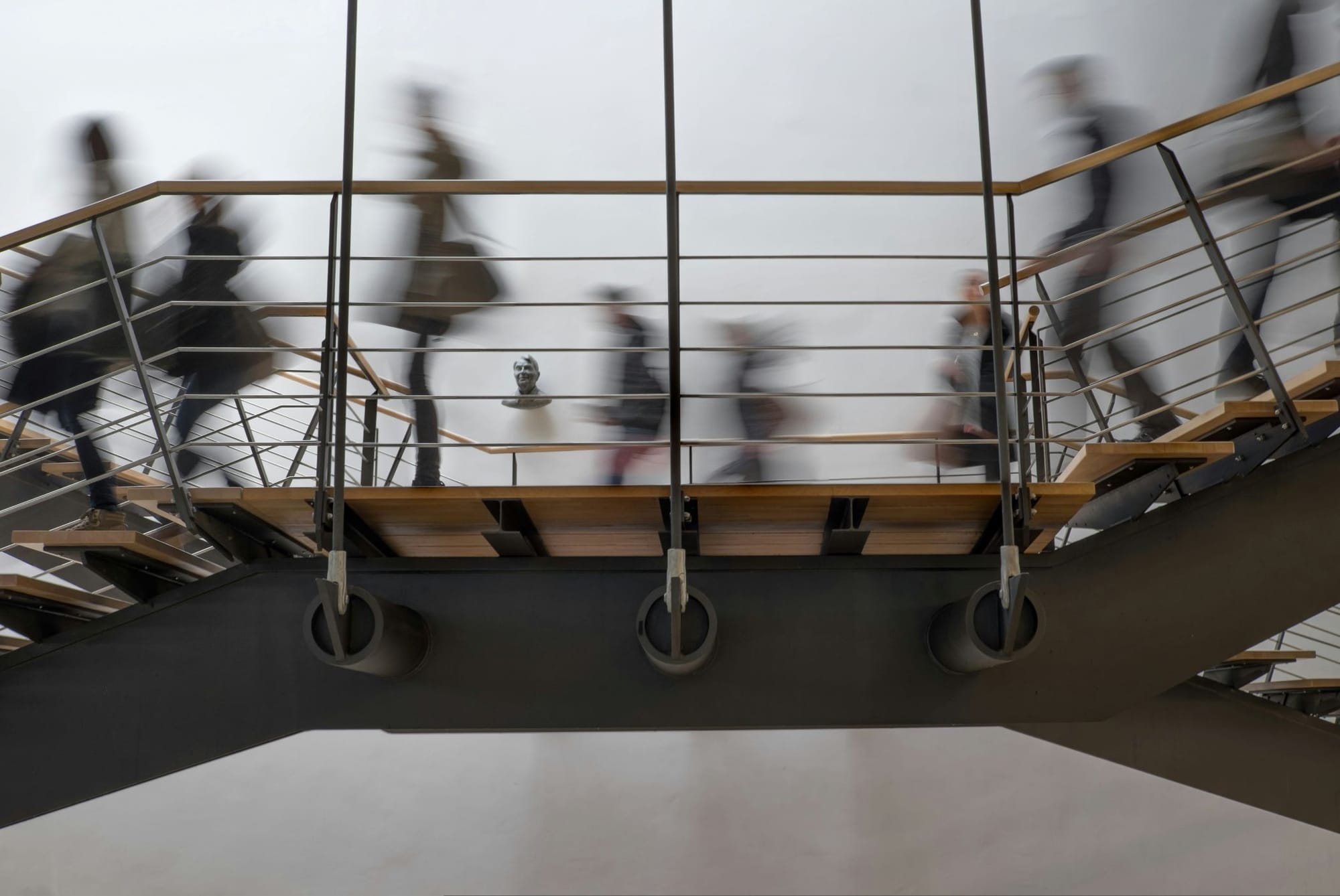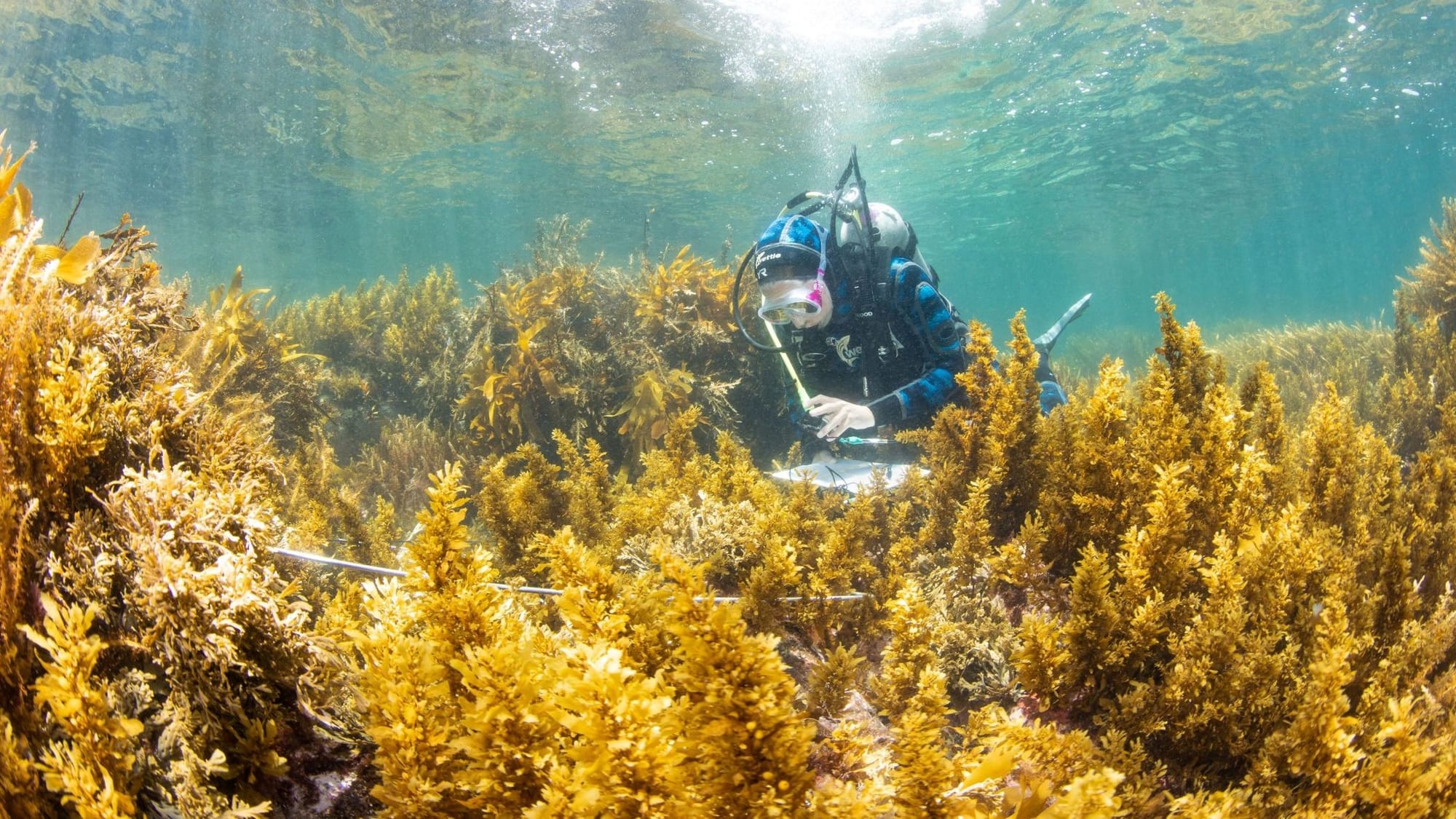How can higher education both protect students and expand global reach?
QS MidWeek Brief - October 1, 2025. With US campuses welcoming international students, how are they overcoming some of the geopolitical concerns? And how can concerns become an opportunity?

Welcome! A few short weeks ago, a new academic year started in the northern hemisphere. With geopolitical concerns placing worries of a potential $7 billion loss in revenue from international students in the US, universities are working hard to make sure they feel welcome.
This week, we look at the background of these concerns and how they’re being overcome. Sticking with geopolitics, we travel to the southern hemisphere to feature an essay on how it can be used as an asset for higher ed and renewed connections.
Stay insightful,
Anton John Crace
Editor-in-Chief, QS Insights Magazine
QS Quacquarelli Symonds
Welcoming International Students on US Campuses
By Jamaal Abdul-Alim

In Brief
- US universities are adapting to welcome international students amidst policy shifts, which threaten significant declines in enrolment and economic contributions.
- Stricter US immigration policies, including visa revocations, have created deep anxiety among international students. This could lead to a 30-40% enrolment drop and $7 billion loss for the US economy.
- To counter policy hurdles, universities are creating supportive "ecosystems" – offering flexible study options, buddy programmes, and integrated career support. This ensures students belong and safeguards US global talent attraction.
When Mudit Lal reflects on his past seven semesters as an undergraduate at Arizona State University, the Lucknow, India native has no shortage of stories about how the school helped him develop as an entrepreneur.
For instance, he says his company, Devalok, a brand design studio based in India, would have only enjoyed a fraction of its success were it not for connections he made through the school’s Technological Entrepreneurship and Management programme.
“Where the company stands today, I don't think it would have been possible without the ecosystem and the support that I got from ASU,” says Lal, who credits his professors with going “out on a limb” to connect him with clients. Devalok’s portfolio includes brands such as movecars.com; Eat Purposefully, a fermented granola company; and DIVINI, which makes probiotic teas.
Speaking from his dorm room on campus in late August, Lal, who is studying robotics and entrepreneurship, says he counts a public affairs course he took with ASU President Michael Crow as one of the most impactful experiences during his time as an undergraduate.
“That was one of the classes that unlocked a new dimension of thinking altogether for me,” says Lal, who did a project for the course that examined the importance of lunar bases.
As Lal begins his eighth and final semester at ASU this fall before returning to his homeland, advocates worry that stricter immigration policies being pursued by the administration of President Donald J. Trump will dissuade large numbers of Lal’s peers from around the world from studying in the US. The Trump administration says the reforms are necessary because the immigration system is too lenient and too lax.
Lal says he heard directly from international students in spring of 2025 who told him they were worried about waking up to a government email stating that their student visas had been rescinded.
“This was the most scary period for international students,” Lal says of spring of 2025, when the Trump administration started revoking thousands of visas from international students for various reasons – including some that groups such as the American Association of University Professors say were more political and meant to squelch free speech than to promote public safety.
“I got a chance to speak to a lot of students firsthand,” Lal says. “So, I think that was the worst crisis in terms of not feeling welcome.”
As colleges and universities in the US brace for fallout from Trump’s policies, advocates say making international students feel welcome is particularly important. The policies could cause a potential 30-40% decline in new international student enrolment, which in turn may contribute to a 15 percent drop in overall enrolment this fall.
The anticipated drop would follow a record high of 1.27 million international students who studied in the US during the 2023-2024 academic year and result in the loss of 60,000 jobs and an estimated $7 billion to the US economy, according to US international education advocacy group NAFSA.
“At a time when federal policy shifts can make students feel unwelcome, it's especially important that institutions create an environment where students know they belong and can succeed,” says Rachel Banks, Senior Director of Public Policy and Legislative Strategy for NAFSA.
At ASU, 14,600 international students are studying at the school this fall, a decline of 3 percent from the 15,100 who attended ASU in the fall of 2024.
Recent shifts in policy for international education in the U.S. include:
- A proposal from the US Department of Homeland Security to end “duration of status” for student visa holders. NAFSA calls the proposal a “gross governmental overreach and deterrent to global talent,” while the Trump administration says the proposed rule would end abuse of the system by “forever” students who extend their time in the US simply by enrolling in more college courses.
- Revelations that the State Department had revoked more than 6,000 student visas in 2025, the “vast majority” of them being for law violations such as cases of assault, drunk driving, burglary, and “support for terrorism.” The State Department says the more than 55 million people who have valid US visas are subject to “continuous vetting” for law violations that could lead to deportation.
- A travel ban issued in June 2025 on people coming from 12 countries, mostly in the Middle East and Africa, and partial restrictions on seven other countries.
NAFSA says visa processing delays are also creating barriers and uncertainty for international students coming to the US. In response, universities, such as ASU, are offering students ways to attend classes digitally or start their studies at partner schools in their home countries while they get things sorted out.
“We are not a school that said here are the four or five things… [that] work best for us, take it or leave it,” says Matt Lopez, Vice President of Academic Enrollment at ASU. Rather, he says, faculty members will meet with students to develop alternative study plans while they work out their student visa situations.
David Di Maria, Vice Provost for Global Engagement at the University of Maryland Baltimore County, or UMBC, says one of the most effective ways to make international students feel welcome is to match them with current students as a way to help integrate newcomers into the campus community while also expediting the acculturation process.
Jamaal Abdul-Alim is a veteran education journalist who resides in Washington, D.C. His articles have appeared in Washington Monthly, Education Week and Diverse: Issues in Higher Education. An avid chess player, Jamaal was named “Chess Journalist of the Year” in 2013. Known as “Professor J” among his students at the University of Maryland, College Park, where he teaches journalism, Jamaal is the founding editor of Sneaker Theory, a website that grew out of a project he did to complete a “Sneaker Essentials” course in 2024 at the Fashion Institute of Technology.
Geopolitics Provides Impetus for Renewed Educational Connections
By Professor Frank Bloomfield, Deputy Vice-Chancellor Research and Innovation, University of Auckland

The rapidly evolving geopolitical and geoeconomic environment is driving new behaviours among nations, higher education institutions and students. In some parts of the world, this polarised landscape has led countries to retreat inward. In contrast, others have intentionally chosen to enhance partnerships and collaborations with institutions and people with shared values.
Globally minded Waipapa Taumata Rau, University of Auckland, and its New Zealand counterparts remain outward-looking, actively building for more robust Latin American collaborations through formal agreements, engagement letters, and extended visits to Brazil, Colombia, Chile, Argentina, Paraguay and Mexico. This approach is supported by New Zealand Government visa policies, which make the country highly attractive compared to peer nations such as the United Kingdom, Canada, the Netherlands, the United States and Australia.
This ambition to strengthen research and study connections across the southern Pacific Ocean comes as interest is renewed in what is called the Southern Link – a potential new supply chain linking Latin America with New Zealand and Asia, with the capacity to develop extensive trade links and, in particular, new opportunities for international education and research alliances. New Zealand’s Auckland International Airport announced that China Eastern Airlines would launch a twice-weekly service connecting Shanghai to Buenos Aires via Auckland at the end of the year.
New Zealand has long looked to Latin America as a natural partner for higher education. A shared attachment to the land and associated agriculture, agri-industry and agri-research is the starting point. Sharing an ocean-facing existence brings the natural focus on marine science, ecology and the blue economy. A common commitment to indigeneity, indigenous-related research and shared values, such as democracy, human rights and the international rules-based system, strengthens the connection. This is further highlighted in a shared focus on addressing climate change and protecting the environment.
Underscoring these shared interests is a mutual commitment to research and innovation that is relevant and purposeful, with impact that responds to challenges from within our communities about the value of universities. This is reflected in the University of Auckland’s Vision 2030 strategy document, Taumata Teitei, and in its adoption of Elsevier’s 4th Generation University concept, which focuses on local impact.
These shared values saw me lead a delegation of New Zealand university representatives to Latin America last year. In September, I will lead a delegation of all eight New Zealand universities to Brazil, following on from the recent visit to New Zealand by a large delegation from the Brazilian Association of Presidents of State and Municipal Universities (ABRUEM). This visit will explore our shared research priorities on climate impacts to production, and how sustainable AgriTech and energy solutions can add value and mitigate environmental effects – through new partnerships in research, and student and staff mobility.
When the University of Auckland hosted the delegation from ABRUEM, areas of common research interest were clear. Both countries are interested in emerging technologies that offer economic benefits for their core industries while also driving social change and advancing discoveries for the betterment of society.
Brazil has developed several technology and innovation ecosystems, while the University of Auckland has a proud record of supporting innovation and entrepreneurship through its wholly owned commercialisation subsidiary, Auckland UniServices, and its Centre for Innovation and Entrepreneurship. It has successful MedTech and Product accelerators, a Space Institute and is expanding its Newmarket Innovation Precinct.
Our international research collaborations are guided by a commitment to excellence with impact, partnerships founded on equity, trust and shared values, and grounded in a clear strategic direction that is open to opportunities. Given the University of Auckland’s globally recognised expertise in indigenous research, we actively seek research collaborators in the Global South and from within indigenous research networks.
Country-to-country agreements supporting collaborations and student exchange were signed with Chile, Brazil and Colombia in 2015. More recently, agreements have been signed with Mexico, Chile and Paraguay to enable postgraduate students with scholarships to study in New Zealand and with Brazil’s Paraná Province.
PhD students are mainly drawn to the discipline-specific expertise at institutions like the University of Auckland, along with a government agreement that allows international students to pay the same tuition fees as domestic PhD students, effectively acting as a scholarship. Furthermore, doctoral students and their families are entitled to generous in-study and post-study work rights and can access the same school benefits as New Zealand children. This appealing combination has attracted Latin American scholars to New Zealand, yet many people are unaware of the opportunity.
Looking forward, the deepening ties between New Zealand and Latin America represent a strategic and values-driven opportunity for higher education. With complementary strengths, shared priorities and a growing framework of institutional partnerships, both regions are well-positioned to co-develop impactful solutions to global challenges. As the University of Auckland continues to invest in joint research, knowledge exchange and outreach initiatives, Latin American scholars will find not only academic excellence but also a welcoming and forward-thinking environment.




